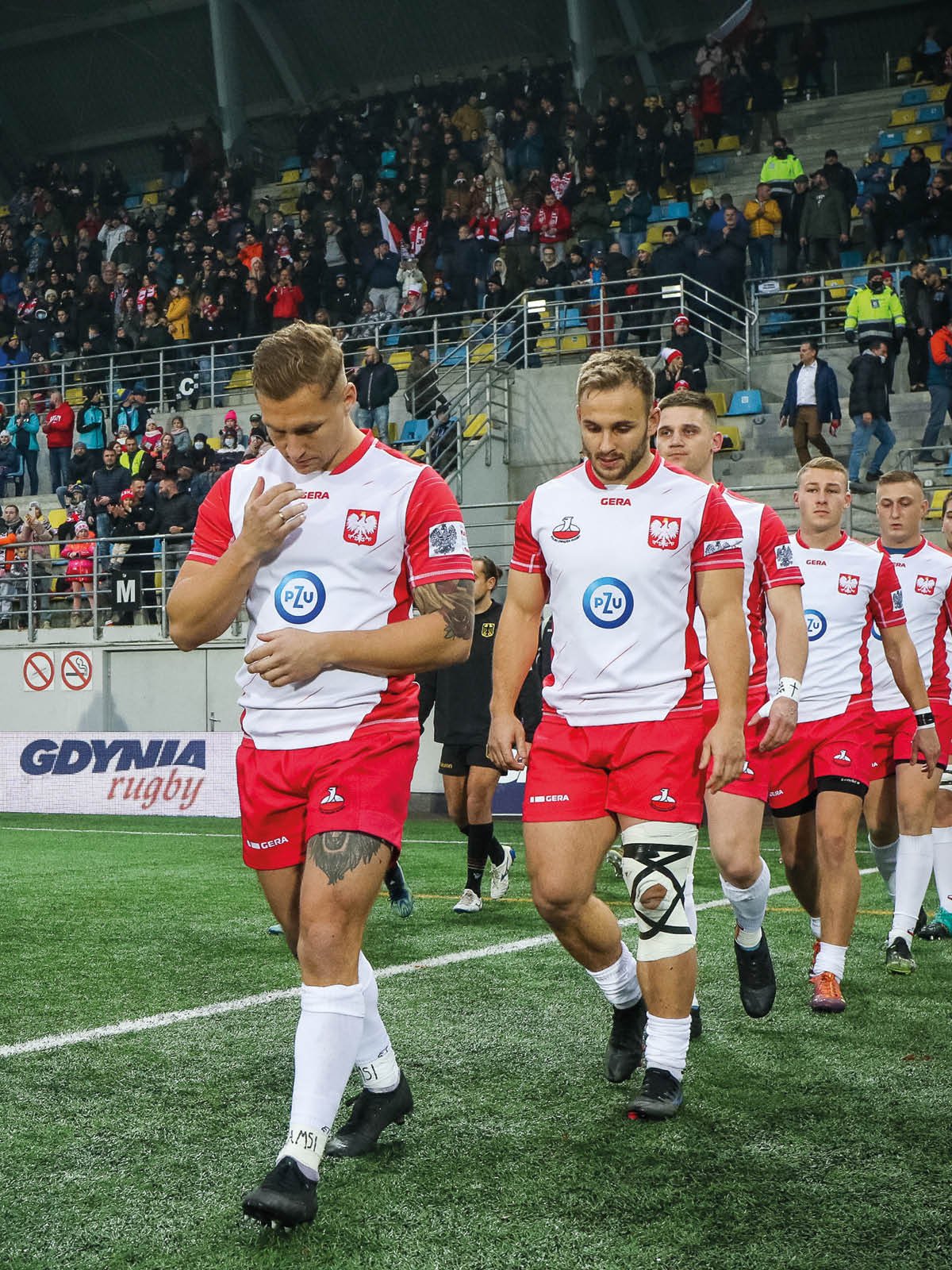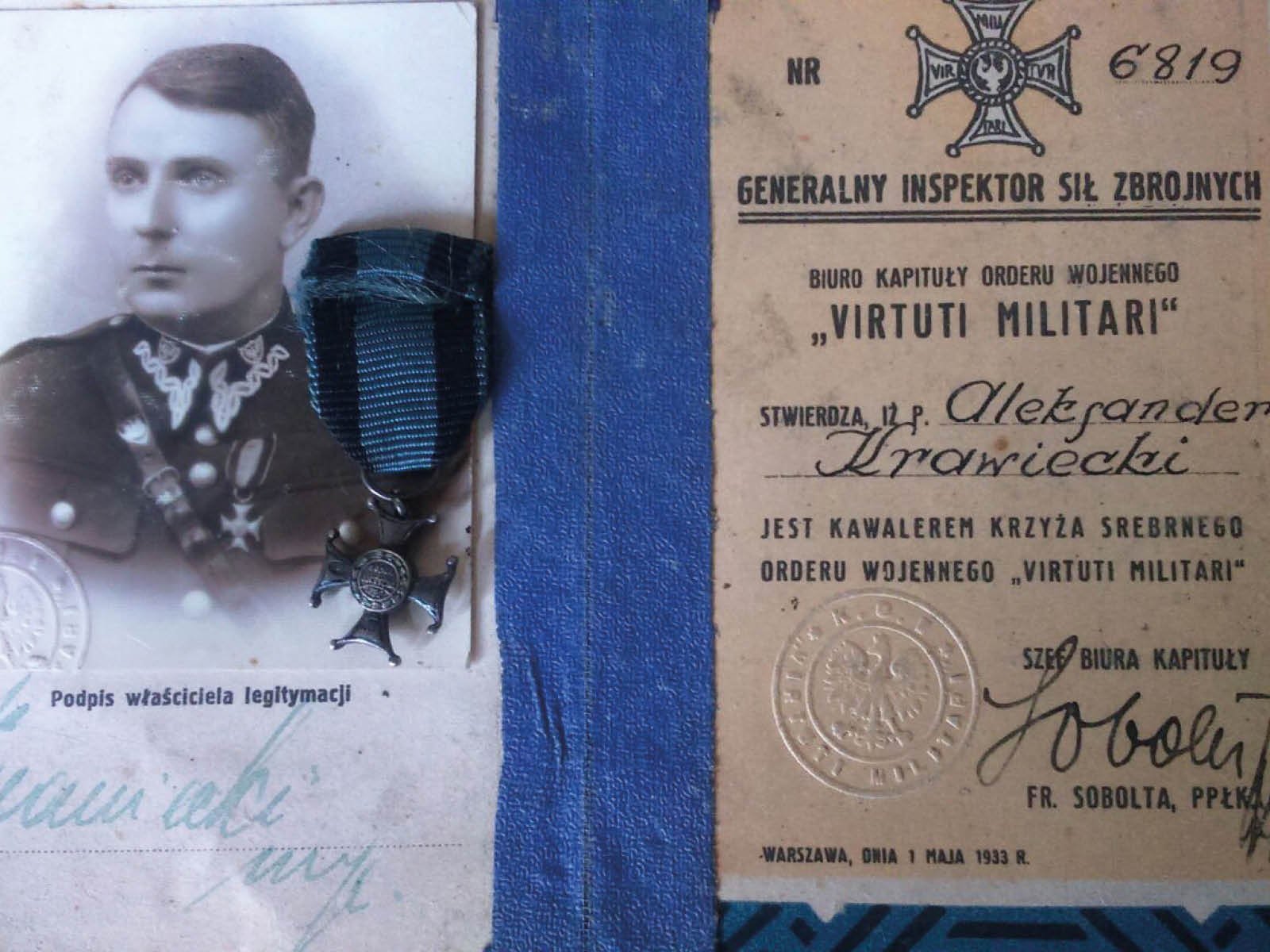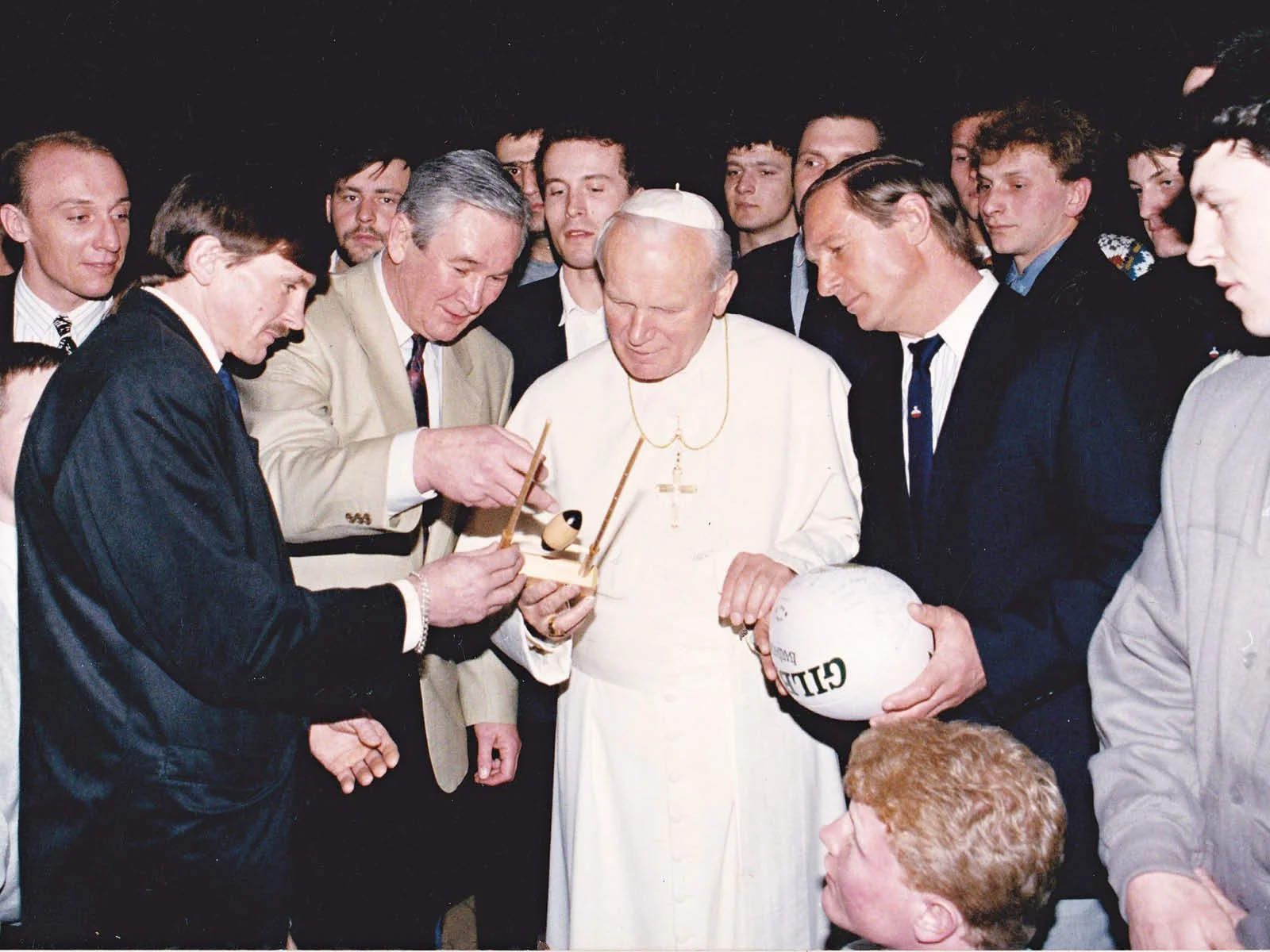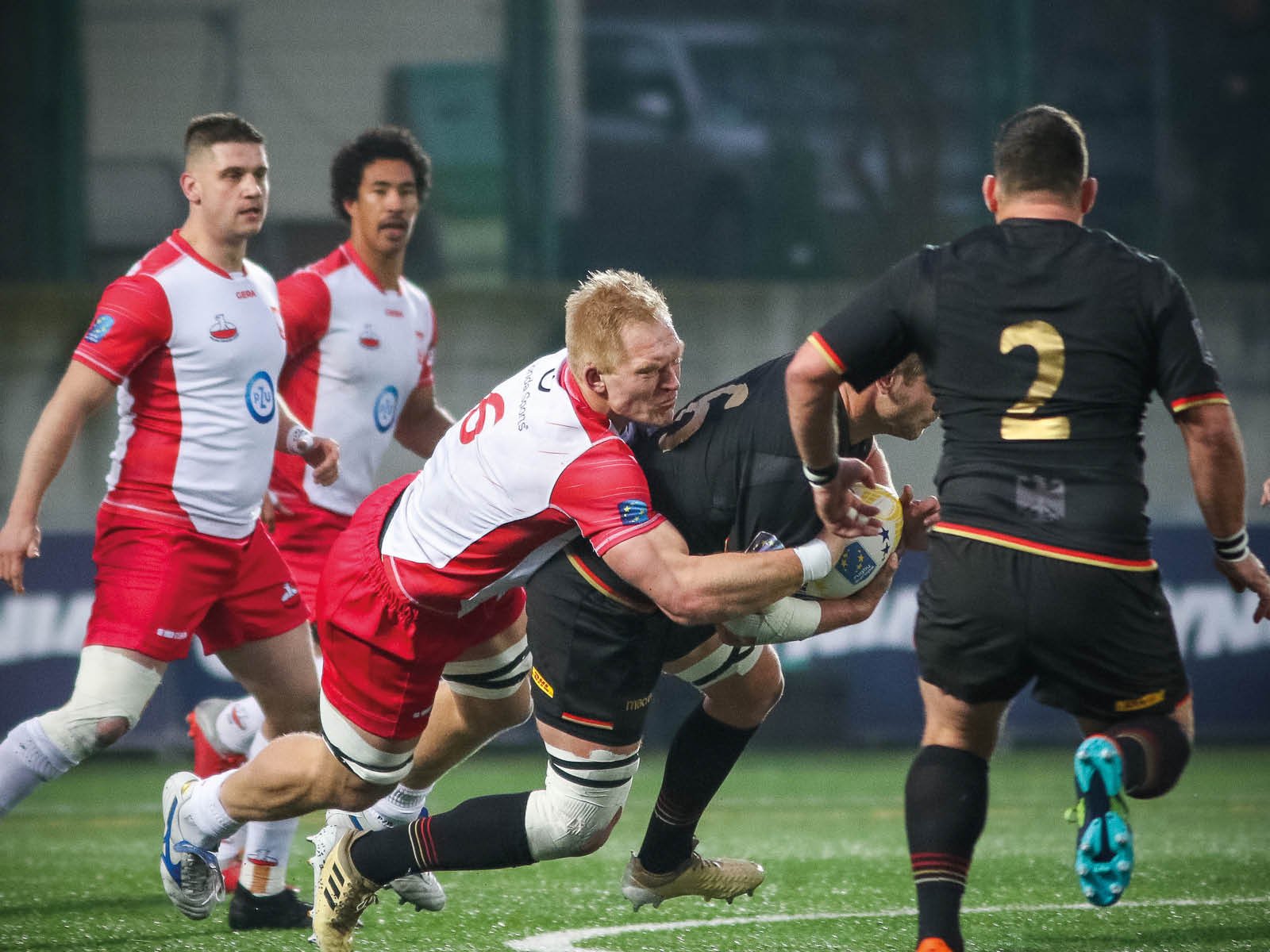Poland
Stories of resistance attacks against the Nazis, Soviet showtrials and the hell of war-time Poland filled their heads. They didn’t need to understand every word spoken by their Welsh coach. This was the team talk to end all team talks. Germany never stood a chance.
The first shots of World War Two were fired by a German battleship at the port of Danzig – now Gdańsk – in the north of Poland on 1 September 1939.
Hitler had declared war on Poland at 4.45am that day and three minutes later the ageing battleship SMS Schleswig-Holstein – which had originally been sent to Danzig on a goodwill mission – opened fire on a Polish ammunition base.
Seven days of fighting ensued, ending with the Polish forces in Danzig surrendering, although the Germans suffered three times as many casualties – the German war machine in its opening salvo was not yet the accomplished fighting force it would become. Sadly for Poland, and for Europe, they wouldn’t take long to tune up.
The Battle of Westerplatte, as it has come to be known, is widely regarded as the first battle of the German invasion of Poland, and therefore the first battle of World War Two.
From there, it took German forces less than a month to overrun Poland and, when Warsaw fell at the end of September, Poland’s fate was sealed. The country was split into two zones, one to be ruled by Nazi Germany, the other by the Soviet Union.
For the following six years, Poland would be occupied by two of the worst regimes in human history. On the one side Hitler saw Poland as a territory for his Lebensraum vision of creating ‘living space’ for ethnic Germans. That meant deporting and exterminating the non-German population from Poland.
On the Soviet side, communist ideology was enforced on Polish citizens which included the confiscation and re-distribution of all private property, in whatever way Soviet leaders saw fit. There were also arrests, murders and deportations to Siberia, the full gamut of totalitarian hell.
The overall number of Polish citizens who died between 1939 and 1945 as a result of the occupation of their own country is estimated at around twenty per cent of the population at the time, more than five million people.
Chronicling the terrible plight of ordinary Polish citizens during World War Two is why the Museum of the Second World War in Gdańsk was built. A modern architectural beauty, situated in the spacious surrounds of the waterways that make up the Gdańsk marina, just six kilometres inland from where the Westerplatte ammunition depot used to be.
Just days before they’re set to face Germany in the second tier of Rugby Europe – a match that will make or break their chances of promotion to the top tier, the Championship – the Poland men’s side, visit the museum.
The timing of the visit, not only on the eve of country’s most important rugby fixture, but also in the same week that Poland celebrates its independence, would seem to be no coincidence. “It was heavy, it was hard-hitting and you realise a bit more about the sort or things that went on and what Polish people went through,” explains Polish lock forward Ed Krawiecki.
Ed lives in the West Midlands, England, but his great grandfather, Aleksander Krawiecki, was a Polish war hero who was awarded the highest Polish military honour, the Virtuti Militari, for his role in World War One. He signed up to fight again in World War Two only to be captured and sent to a Soviet show trial in St Petersburg, after the Russians recognised who he was. He and his family were sent to a Siberian labour camp until being released when Russia and Poland became allies. His other great grandfather, Boleslaw Kozubowski, meanwhile was a key figure in the Polish resistance movement and was involved in the Warsaw Uprising in 1944 – the single largest military operation undertaken by any resistance movement during the war – before being thrown into the notorious Pawiak Prison, and also sent to a Nazi concentration camp.
“With one great grandfather who was fighting the Russians,” continues Ed, “and the other who was in the midst of the Warsaw Uprising, the museum connected me to my family’s story. It was definitely emotional.”
Team-mate and fly-half Dan Tomanek – whose Polish grandfather was a gunner on a Polish battleship during the war – also felt the trip had a big impact on many players in the squad. “It made a lot of the boys angry,” he says. “I’m not going to lie it was pretty graphic, and it made you quite emotional. There was a picture of thousands and thousands of Polish dead bodies and there’s Germans running them over and this sort of thing.”
Afterwards, Ed – a Bromsgrove RFC player – gave a speech to his Polish team-mates about his great grandfathers’ lives and what it means to him to be playing for Poland. It’s a speech everyone we speak to in the Polish camp seems to reference, as a high point of connection in a highly charged week for the squad.
Match day. Filled with images, stories and feelings around the fate of their Polish relatives and with the fixture being played in Gdynia – just half an hour’s drive up the coast from Gdańsk and with a similar war-time story to tell – Poland secure a famous rugby victory over Germany 21-16, despite having been almost down and out at half-time.
The scenes at the final whistle are of the variety reserved for the most special of days in a rugby career. “Yeah, the celebrations summed it up,” says Ed, who started in the second row. “It was a pretty intense week and there was an outpouring of emotion afterwards. You could feel it on the pitch. By half-time [when the score was 3-13 to Germany] we were hanging on a bit and they were definitely the dominant team. It would have been easy to let them score the next try and let them run away with it. But there was definitely an emotion of not wanting to give them the chance and getting stuck in and we just kept on battling, and we did it.”
A week later, Poland beat Switzerland 37-25 in Warsaw to make it three from three in the Rugby Europe Trophy, leaving them with just one win required from their two remaining matches against Belgium and Lithuania to gain promotion to the Rugby Europe Championship, where the likes of Russia, Georgia, Romania and Spain compete.
The 2021/22 season may one day be looked back on as the start of the boom years for rugby in Poland. No period in the country’s rugby past comes close to resembling how rosy things are looking at the moment.
World War Two, communism and the Cold War have held the sport back so much that the Polish Rugby Union wasn’t founded until 1957. Although Poland have recorded isolated victories over bigger rugby nations – the Soviet Union were beaten in ’75 and ’82; Spain in ’78 and ’80; Italy in ’77 and Georgia in ’93 and ’97 – none of those wins were part of a sustained period of success. Their best days are definitely ahead of them.
Not that you’ll find anyone in Poland speaking so boldly. After what the Polish Rugby Union has been through in recent years, caution is part of their make-up. The union is still recovering from years of financial mismanagement when unchecked and unchallenged ambition brought it to its knees.
The current general secretary Krzysztof Czajka was one of the people brought in to perform the clean-up operation in 2016, even if no one told him at the time how bad things were. “After two weeks of being in the office, I realised what the real situation was, that the union faced huge debts,” explains Krzysztof. “We were minus about 400,000 euros. You couldn’t see [the debt] from the accounting point of view but from the cash flow you could see there were gaps. We were in trouble. We had to change accountants as well and that made it worse.
“It took us one-and-a-half years to put everything in order,” continues Krzysztof, “and to realise how much debt we were in, and then it took another year to make the situation better. That was mainly on mine and our president’s head. It was on me and him.”
To put their troubles in context, the debt amounted approximately to the level of central funding the union were receiving annually from the Polish government. The government was essentially propping up a union that couldn’t wash its face, let alone develop the sport.
Unsurprisingly, the union’s board decided that rugby folk shouldn’t be in charge of the union and opted for outsiders – Krzysztof and the new president Dariusz Olszewski both had no connections to rugby when they came in.
Krzysztof’s sporting connections consisted of being a track and field athlete in his youth and once working as a skiing instructor, while president Olszewski was, and still is, a member of the Polish parliament.
Political clout was matched with administrative diligence and together they set about making savings, repairing relationships with suppliers, and paying down the debt. “The union had got into problems because people were spending money in the hope that a huge sponsor would come in,” explains Krzysztof.
“It was very risky and there was no control over it. It’s nice to be able to spend 10,000 euros to promote a game. But when we came into the office we looked at how much money that promotion would bring in and we said ‘if we spend 10,000 in order to get 6,000 in ticket sales, sorry it’s not adding up’.
“It meant that in the last three years, we have lost spectators at games because we haven’t promoted them as much as before but the risk factor that spectators wouldn’t show up was too great.”
Other cost savings were achieved by capping the number of employees at the union, not raising salaries, and making very few hires. The men’s senior team was also limited to staying in three-star hotels when in camp or on the road, having previously been booked into four-star or five-star accommodation.
“They wanted to go big and tried to show that the national team can do a lot of things, like stay in nice hotels, but they did not have the resources to do it,” laments Krzysztof. “We are not operating like that anymore.
“The situation was very hard and I can tell you that if I knew what the real situation was at the time, I don’t know if I would have taken the job. But thanks to the president and our new board members we were able to survive.”
Given the union’s cost-saving drive between 2017 and 2020, the performances on the field by Poland’s senior national teams were impressive. The men preserved their status in the Rugby Europe Trophy with two fourth-placed finishes and a fifth place (in a league of six). Meanwhile, the women’s sevens team started to gain traction.
Driven by the vision and tenacity of former national team player Janez Urbanowicz, who was a goal-kicking prop no less, the women’s sevens team qualified to compete in the Sevens World Series qualifying tournament in Hong Kong in both 2018 and 2019, and finished second in last year’s Rugby Europe Championship, beating the likes of Wales and Scotland. It was their best-ever finish in the competition.
Furthermore, just before the Rugby Journal went to press, the Polish women’s team competed for the first time in the HSBC Sevens World Series, in Malaga as an invitational team and made the quarter-finals after beating Canada 17-14, which Krzysztof qualifies for us as the greatest success in Polish rugby history, given that the fixture took place at the highest level of the sport, the World Series.
While the women’s team now know what the elite end of the sport is like, only one Polish men’s player currently has that knowledge, captain and No8 Piotr Zeszutek – and the tale of how he got there is best told by him.
“On the first of April in Poland we have the joke day, you know?” Piotr tells us, while in the process of unloading crates of craft liqueur at one of the three liquor stores he runs with his brother in Poland. “So, I wrote on my fan page on Facebook that I had signed a new contract and that I was going to Harlequins. Because people in Poland know that team.
“It was only a joke but, after two months, I got a message on Instagram saying ‘what about going to a Premiership club?’. It was from Harlequins.
“I was shocked of course, but I said I can go. Poland had just played Portugal and it was one of my best games for the team and we lost by just one point. Someone made highlights of my game and said something like the ‘Polish Tank destroying Portugal’ and I think the Harlequins manager saw that, so that is likely why they contacted me.
“I don’t know if my joke actually played any part but I always mention it in my story!
“So, I went over to England and stayed there for one and a half months as a trial. They told me that if I was good enough they would give me a contract.
“I had an apartment, training stuff, food, everything was covered for me, although I didn’t get any money. It was for free but for me it was a good time. I had a great contact with Paul Lasike, a US national team and former American football player, I am still in contact with him. I am still in contact with Francis Saili, a good guy.
“During training I was always the partner of Chris Robshaw,” he continues, “so that was the best experience for me. He was like my older brother there. From Chris I learned how to help younger players develop so I try to do that at my team now and I hope they feel like I am their father, or something.”
“I played one game for Harlequins, against Gloucester, but they didn’t offer me a contract. I really felt I could be there for a longer time. The only problem was they [the club] didn’t say anything to me [when they let me go] it was a bit weird for me, they didn’t say why and what happened. They just said it was over and that was on WhatsApp, it wasn’t a normal chat so that was weird.
“I can imagine why I wasn’t good enough for them, for that level, because of running, fitness, that’s the thing.”
Piotr would return to Poland and carry on with normal life, running his three liquor stores, working as a freelance marketing consultant, and playing rugby for Poland and his club Sopot – the best team in Poland’s Ekstraliga.
In the recent matches against Germany and Switzerland, Piotr has been pivotal, leading from the front with two captain’s performances. However, the ‘Polish Tank’ – a moniker Piotr has adopted and now uses to brand a range of beer he sells in his liquor stores – will not be present for Poland’s final two matches of the Rugby Europe Trophy in March (v Belgium) and April (v Lithuania) as he injured his Achilles playing basketball and it required surgery, from which he is now recovering. “That was an honest conversation!” chuckles Christian Hitt, Poland’s young and highly-regarded Welsh head coach. “These things happen. He knows it was a mess-up on his part. We’re not going to replace him, we haven’t got a person to replace him so we’ll have to look at the back row and what we can do.
“Piotr sums up Polish rugby and that level of where we need to go as a collective. He was the first person I spoke to after getting the job and watching his games over the last two years I felt he wasn’t playing his best, he was just happy with his rugby, he wasn’t pushing himself.
“As I knew him from before [during a previous coaching stint with Poland] I said, ‘look you’re not the player you were but that’s not to say you can’t be again if you want to.’
“‘You’ve got to change and sacrifice a few things off the field. Yes, you may play well in the Ekstraliga week-in week-out but that’s not our level, we want to play at a quicker pace and intensity, you’re not there’, as other players weren’t. In fairness to Piotr, he took it on the chin, went away, worked on it, and those two games in November (against Germany and Switzerland) were the best games I’ve seen him play, the physicality and work rate on him was great. He’s the soundboard for everybody and he says what he thinks is working, and what’s not, and I do the same.”
Christian has been implementing higher standards of professionalism for Polish rugby since he got to work in early 2021, and is able to call on plenty of rugby IQ in the boot-room with former Welsh full-back Morgan Stoddart amongst his coaching staff as well as Cross Keys coach Gwesyn Price-Jones.
So how is the language barrier for him and his coaches as non-Polish speakers with Welsh accents? “The majority of players do understand English,” explains Christian. “They’re not comfortable necessarily to have conversations, but they do understand the majority of what we say.
“But we’ve got to be careful how we put our message across and we try not to go on too much when making a point! It was something that was spoken a lot about when I got the job, the worry that the players wouldn’t be able to understand and we wouldn’t be able to perform because of the language barrier. But to me, that’s just an excuse. There’s enough technology now to be able to translate, whether through players physically translating, Google translate, PowerPoints, videos, diagrams, walk-throughs, drawings. We try and use as many tools as possible to get over the language barrier.”
One of the other big pieces in the Polish rugby jigsaw is the top domestic league, the Ekstraliga Polska. Unlike most European leagues, it runs from August to October, then breaks until March (due to the plunging temperatures in Poland at that time of the year – it can get down to -25°C) before picking up again in March and running until early summer.
More pressing than the weather, however, is how the Polish Rugby Union can maintain a balance of developing young Polish talent in the Ekstraliga whilst raising the overall quality of the league through the arrival of players from abroad.
By comparison with the UK or French leagues, there isn’t much money to be made as a professional rugby player in Poland yet the packages on offer – including accommodation, insurance, travel packages, even food – do attract ambitious players from all over, especially South Africa.
A player who had recently played for an Ekstraliga team told the Rugby Journal that no one in the league will likely be earning more than 1,500 euros a month.
However, if Poland do gain promotion to the Rugby Europe Championship for next year, foreign-born Polish talent is likely to become more important to Polish rugby as competing with Georgia and Russia will, to some degree, require new personnel, and the quickest route to beefing up a playing squad is to recruit foreign players with Polish ancestry.
For the captain Piotr, how Polish you are, doesn’t matter. “What can I say?” he asks. “I want to do more than we have done in the last 50 or 60 years [in Polish rugby] and this is the best time to do that. If someone feels Polish, I enjoy that.
“Ed Krawiecki told us his whole history about him and his [great] grandfather who fought for Poland. It was very touching and he said he wanted to make something for Poland because of his [great] grandfather and everyone has a different story and a different reason to be playing for the national team.
“We always need to look for a bigger aim than now and I think we need players from abroad. Right now we have a mental problem with Polish players sometimes. Sometimes we are in our comfort box too much and sometimes you need to think outside of the box.
“Right now what has happened with the national team means people are talking about us. The last two months they are talking about us – media calling us to do interviews and it’s great. We’ve never felt like that before. We, I believe, can change the fact that we are a small sport.
“Where I live [in Sopot, north Poland] people do know rugby and we are always hearing that the north of Poland has good teams, Sopot, Gdansk, Gdynia. But there are places in Poland who have never heard of rugby so there’s a problem, there’s a mentality to change there.”
Even if Piotr and the national team fall at the final hurdle and don’t gain promotion to the next tier this season, rugby at grass roots level in Poland is bubbling along nicely.
The Polish Rugby Union vice president Jarek Prasał outlined to the Rugby Journal how, over the next five years, the union aims to double the number of players playing the sport across all levels: men’s, women’s, seniors and juniors.
Furthermore, the game is now being brought into more Polish living rooms than ever before with the union taking the decision to reject their previous pay TV deal and put national team matches on free-to-air television. This decision meant that 89,000 people tuned in for Poland’s match with Germany in November, up from the 9,000 people who paid to watch the same fixture in 2019. The Ekstraliga final will also be on free-to-air TV as will selected big games during the season.
On top of monitoring playing numbers and viewing numbers, Jarek has another good yardstick by which to measure progress: his son Jan. Jarek started playing rugby aged thirteen in the early 1990s, yet his son, Jan, now aged twelve, started playing at nine – a four-year head start on his old man.
There’s plenty to aim at for Jan when it comes to following in his father’s footsteps as Jarek was Poland’s U19 captain and played at two age-grade Rugby World Cups, once almost scoring a try against England. “I was the Polish captain at the U19 Rugby World Cup in Cardiff in 1999 and we played against England,” Jarek recalls. “We lost heavily. Andy Goode was England’s fly-half and Andy took a 22 drop-out and I managed to cover it, a charge down, and I nearly scored! I saw the try line but then two trains came out of nowhere and smashed me out. That was the closest Poland got to getting a try against England!”
Twenty-three years later, Poland stand on the cusp of becoming a second tier rugby nation, and although still a while away from challenging the likes of England they could be a coming force in European rugby. Just ask the Germans.
Story by Jack Zorab
Pictures by Wojciech Szymański
This extract was taken from issue 17 of Rugby.
To order the print journal, click here.











